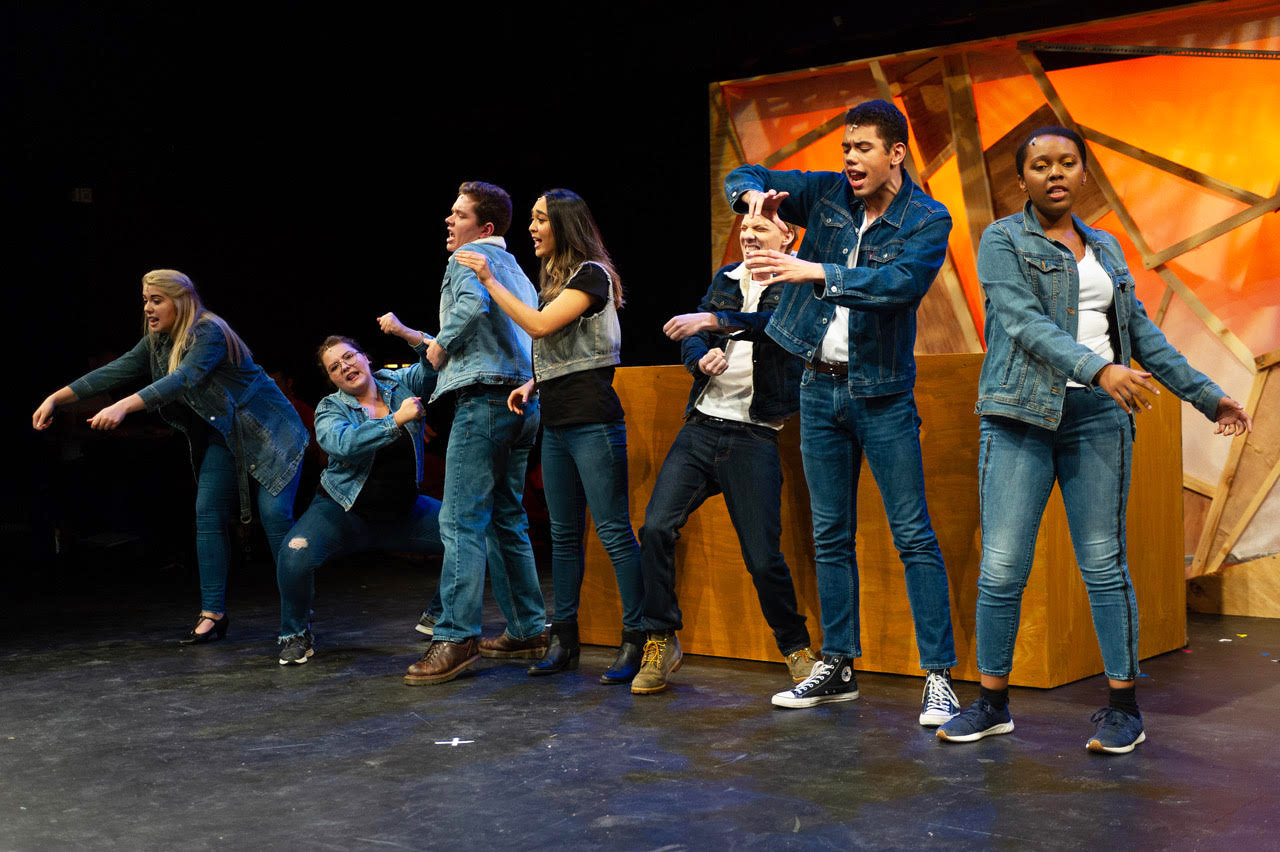
Courtesy of Ash Pales
“Working” — a revue musical that is featured from Oct. 10–12 in the Whitney Humanities Center — depicts the American working class via a collection of song-and-monologue vignettes.
The musical was produced by Jack McAuliffe ’20 and Adrianne Owings ’20 as their senior project in theatre studies. Its seven cast members play over 30 characters.
“[The musical] is really unique in that it represents real people — not historical figures or famous characters — but everyday normal people,” Owings said.
The show is a musical adaptation of a 1974 book by Studs Terkel called “Working: People Talk About What They Do All Day and How They Feel About What They Do.” According to McAuliffe, Terkel was a celebrated historian and broadcast journalist who traveled across the country to report on the lives of the working-class individuals. Terkel collected testimonies from Americans of various race, class, ethnicity and gender and compiled his interviews into a book.
Terkel’s book was first adapted into a Broadway musical in 1978 by Stephen Schwartz and Nina Faso. Since then, the show has been revived several times. McAuliffe and Owings are putting up a 2012 revision of the musical.
“It doesn’t try to answer all the questions it raises,” McAuliffe said. “It puts in front of us the real words of real people and gives us the space to think about it without a right answer.”
Owings said that she and McAuliffe chose “Working” because it allowed them to create intimacy in a “cabaret-style” performance. The subject of the play was fascinating because they both once considered majoring in history, Owings said.
Over the summer, Owings and McAuliffe conducted historical research for the play. They looked into labor movements and the post-World War II work ethic of Americans. Owings said that this research was necessary because the show is based on reality.
Eren Kafadar ’20, who worked on costumes for the production, said that they wanted to make costumes for the musical as realistic as possible.
McAuliffe said that the show is more than a critique of the capitalist work ethic. The show is about “the way work spills over into the rest of our lives,” McAuliffe said.
“When we go to work for, say, eight hours a day, it doesn’t go away,” McAuliffe said. “What we did all day is still on our minds — whether that bleeds out into family life, how we view ourselves or how tired we are.”
McAuliffe added that putting the show on during his senior year prompted him to reflect on the next stage of his life and find meaning in everyday life.
“I think ‘Working’ is relevant because we’re at a place that is so busy and hardworking, where work is fundamental to the identity of a lot of people,” Owings said. “It forces people to think about the purpose of their work and how it will eventually affect them.”
Whitney Humanities Center is located on 53 Wall St.
Freya Savla | freya.savla@yale.edu
Correction, Oct. 22: A previous version of this article referred to “Working” as a “review musical.” In fact, it is a revue musical.







